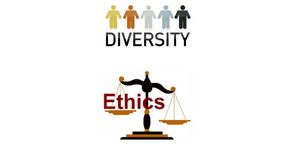
On February 2, 2023, the Supreme Court of Florida, on its own motion, removed the terms “fairness” and “diversity” from the course topics that judges in Florida may use to fulfill their continuing judicial education ethics requirements. See In re: Amendments to Florida Rule of General Practice and Judicial Administration 2.320, No. SC23-114 (Feb. 2, 2023). Florida Rule of General Practice and Judicial Administration 2.320 (Continuing Judicial Education) has long required that four of each judge’s thirty continuing education hours to be in the area of judicial ethics. The court added new language to specify that a judge can receive credit for “portions of approved courses which pertain to judicial professionalism, opinions of the Judicial Ethics Advisory Committee, and the Code of Judicial Conduct” to satisfy this requirement. In doing so, the court removed the “overbroad” language which allowed judges to satisfy their required judicial ethics continuing education hours by attending courses about “fairness and diversity.” Id. at 3.
The court explained that “the pre-amendment rule text was overbroad, because course content about ‘fairness and diversity’ might or might not pertain to judicial ethics.” Id. at 3. In contrast, the newly added language limiting the judicial ethics content to “portions of approved courses which pertain to judicial professionalism, opinions of the Judicial Ethics Advisory Committee, and the Code of Judicial Conduct” will “unquestionably pertains to the subject of judicial ethics.” Id. The court further explained that “course content on procedural fairness and nondiscrimination will continue to qualify for ethics credit.”
Judge Labarga, the lone dissenter, penned a strongly worded response to the court’s unilateral amendments to the rules. Judge Labarga’s dissent voiced concerns that “this unilateral action potentially eliminates vital educational content from our state courts’ judicial education curriculum and does so in a manner inconsistent with this Court’s years-long commitment to fairness and diversity education.” Id. at 6. Further, the dissent opined that the court’s action “paves the way for a complete dismantling of all fairness and diversity initiatives in the State Courts System.” Id. Said the dissent:
As stressed by the majority, the canons in the Code of Judicial Conduct do prohibit bias and prejudice in their various forms. However, the purpose of providing express consideration to fairness and diversity education has been to complement the canons, and in the hopes of addressing the extremely complex issue that is discrimination, to educate the judiciary on strategies for recognizing and combatting discrimination. For these reasons, such a decision at this level of institutional gravity is, in my opinion, unwarranted, untimely, and ill-advised.
